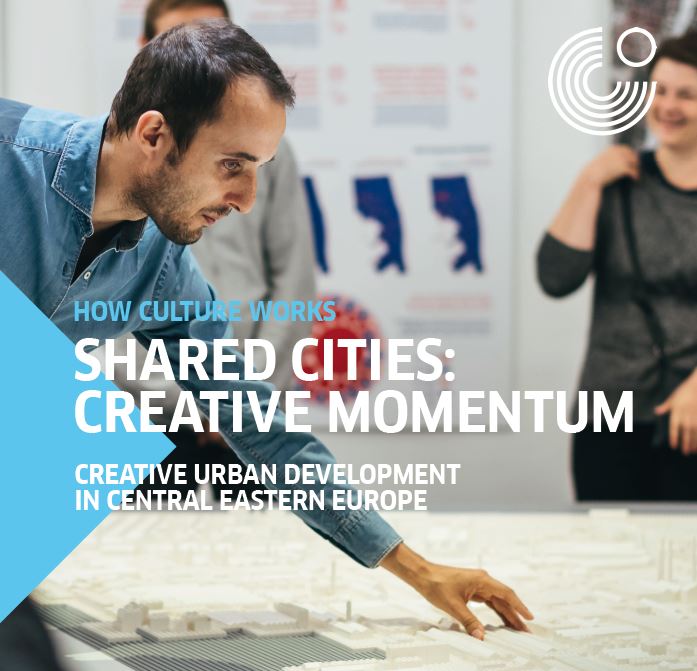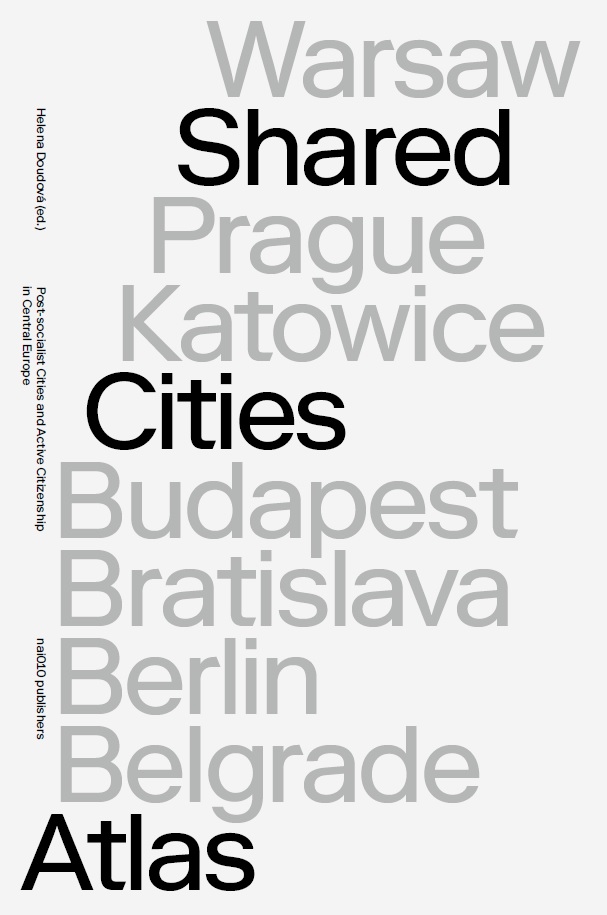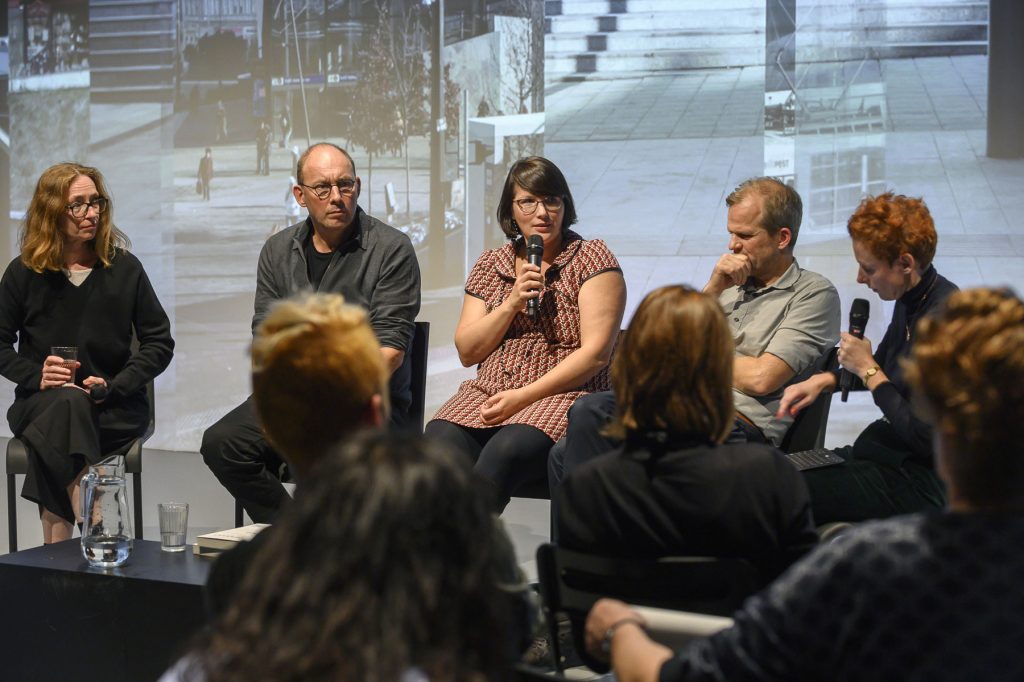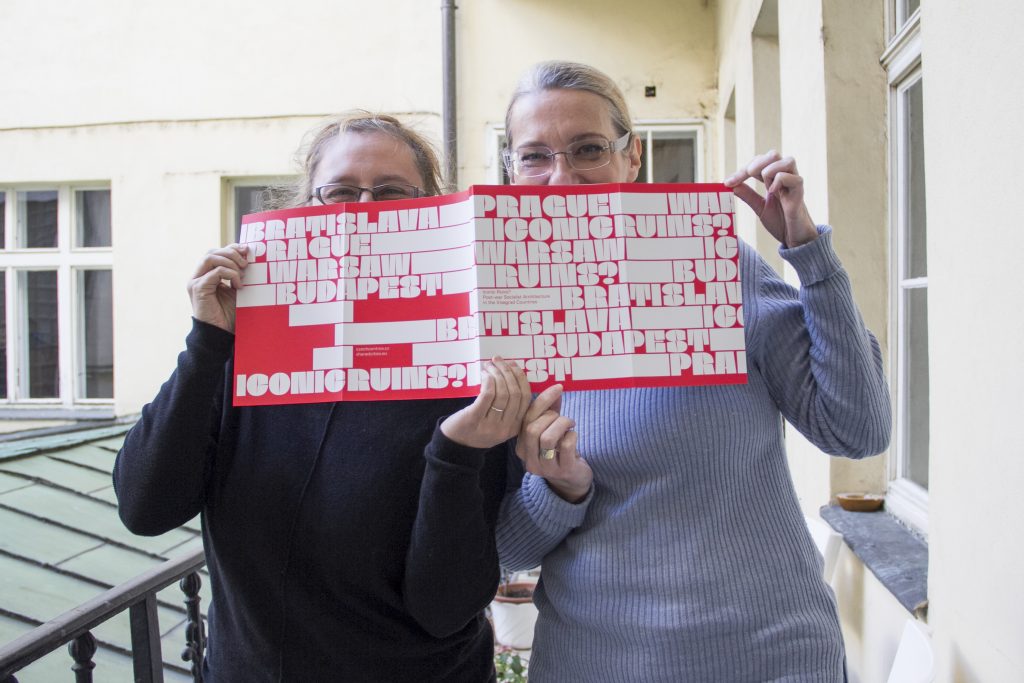
How Culture Works
"DOES EVERYTHING ALWAYS HAVE TO BE ASSESSED?" No. But when cultural work is financed with public funds, there is a necessity to evaluate.
Prague Permanent linkPost-Socialist Cities and Active Citizenship in Central Europe - New forms of active citizenship - With seven post-communistic cities including Berlin - Sharing as a strategy for a better city

©nai010 publishers
The Shared Cities Atlas applies the new, global ‘sharing paradigm’ in architecture and public sphere to a site-specific situation in seven cities in Central Europe. Mapping current practices of sharing and new fields of action in case studies, it contextualizes the phenomenon in research papers, data, and photography.
The ideas of a ‘right to the city’, of common resources, or ‘the urban commons’ all of which are in vogue in contemporary architectural discourse illustrate the paradigm shift towards a sharing perspective. In ‘sharing cities’ the emphasis lies in the right to remake the cities as a form of urban social contract with a specific creative or critical agenda. The Atlas presents creative forms of sharing driven by idealistic positions and collective actions – new approaches to sharing of spaces and architecture, experience and knowledge, data, or collective histories.
The launch of the Shared Cities Atlas was part of Shared Cities: The Finale.
Have a look inside:
Sneak Preview of Shared Cities Atlas
Download Press Kit of Shared Cities Atlas
Order here.
Helena Doudova (ed.), contributions by David Crowley, Elke Krasny Peter Mortenbock and Helge Mooshammer | design: Joost Grootens | photography: Olja Triaska Stefanovic | published by nai010 publishers
+++++++++++++++++++++++++++++++++++++++++++++++++++++++++++++
By Martina Peachment Brehmer
The Shared Cities Atlas maps current sharing trends in Central and Eastern European cities. Which initiatives or new forms of sharing in the region are the most remarkable ones?
The Atlas presents best practices which were created as part of the Shared Cities: Creative Momentum project. We commissioned our partners to develop case studies which deal with sharing in general – in public space, in the digital realm. I’d like to highlight Belgrade with its urban hubs and participatory models of sharing in the city. Our partner Medialab in Katowice used data stories to visualize information in the Atlas as well as ran its own project analysing data on culture in the city, like the accessibility of cultural institutions. The trend of sharing knowledge and sharing data is important for new and innovative sharing practices. […]

"DOES EVERYTHING ALWAYS HAVE TO BE ASSESSED?" No. But when cultural work is financed with public funds, there is a necessity to evaluate.
Prague Permanent link
The one-day programme was based on discussion formats with renowned European architecture theorists, curators and urban researchers.
Prague Permanent link
Within Shared Cities: Creative Momentum the Czech Centres realized the "Iconic Ruins?" exhibition and an economic impact evaluation of the project. How does the future of the exhibition look like? What are the benefits of having an economic analysis of the project? Find the answers in the interview with Ivana Černá and Sandra Karácsony from the Czech Centres / Česká Centra in Prague, Czech Republic.
Prague Permanent link